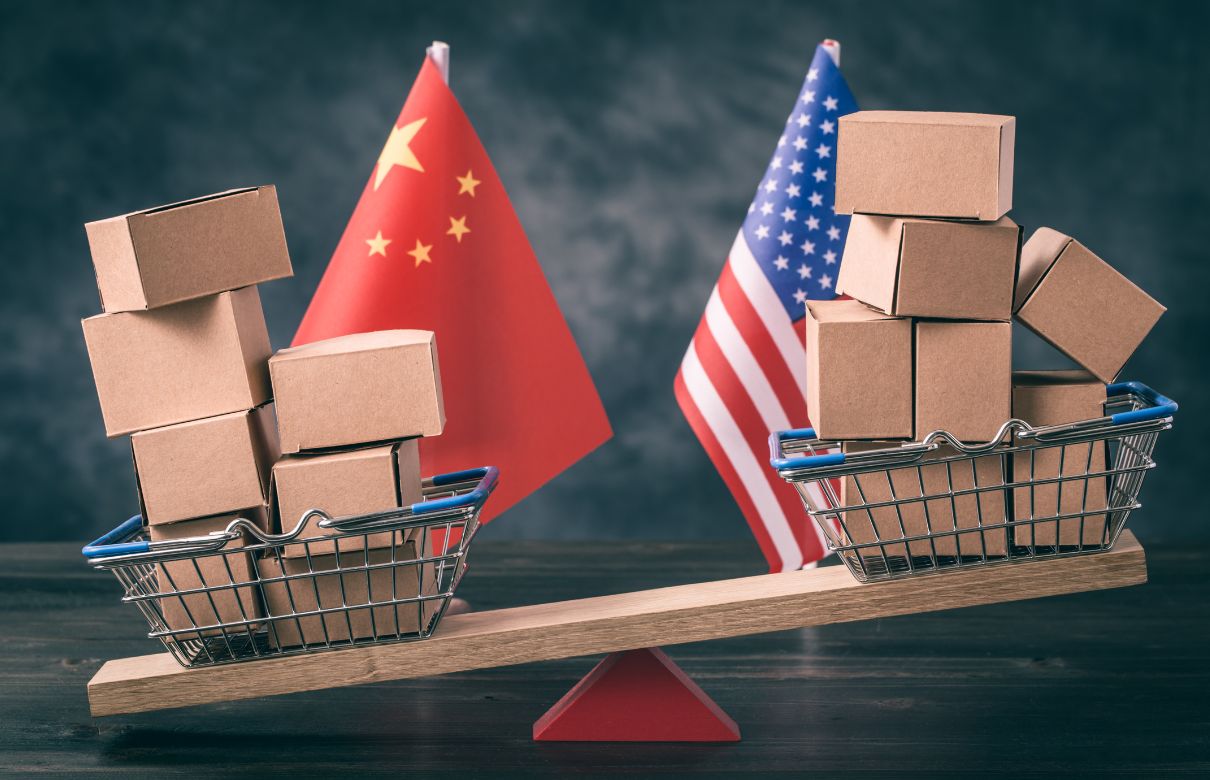Exercitation ullamco laboris nis aliquip sed conseqrure dolorn repreh deris ptate velit ecepteur duis.
- Kamat Grand, Behind Caculo Mall, Panaji, Goa - 403001
- Help Desk +91 94224 46633
Trade Wars And The Global Recession Risk: A World Economy On The Edge
-
Mahesh Pai > Blog > Articles > Trade Wars And The Global Recession Risk: A World Economy On The Edge
 Articles
Articles
Over the past few months, we’ve seen a growing number of headlines about rising prices, market ups and downs, and fears of a slowdown in the world economy. Behind a lot of this noise is one big cause: Trade wars.
A trade war isn’t just about taxes or policies, it’s something that can affect jobs, businesses, shopping bills, and even your savings. One of the biggest players in this situation is the United States, whose recent moves have sparked a chain reaction across the globe. Could all this lead to another global recession?
Let’s break it down and understand what’s really happening and why it matters.
What Started the Trade Tensions?
Recently, the U.S. government decided to put extra taxes, called tariffs, on goods coming from other countries. The idea was to protect American businesses and encourage people to buy products made in the U.S. But these new taxes didn’t just affect the U.S.—they also upset other countries, especially China and members of the European Union. In response, those countries raised their own taxes on American goods. Now, both sides are making it more expensive to trade with each other. This back-and-forth has made it harder for businesses to buy and sell products across borders, which is slowing down trade around the world.
How Trade Wars Hurt the Economy?
When countries make trade more difficult or expensive, businesses have to deal with higher costs. They may have to spend more to get the same materials or move their products around. In many cases, they pass these higher costs on to customers by raising prices. This can lead to:
– More expensive products for everyday people
– Businesses cutting back on hiring or even letting go of workers
– Less money being spent overall
– Slower growth for companies and countries
If enough countries experience these problems at the same time, the global economy can slow down and that’s when a recession becomes a real risk.
What This Means for Ordinary People?
Even if you don’t follow global politics, trade wars can still affect you. You might notice the prices of imported goods going up, things like smartphones, cars, or packaged foods. If businesses are earning less or spending more, they might slow down hiring or stop giving raises. Over time, it can become harder to find stable jobs or keep up with rising living costs. In short, a global slowdown can quietly enter into our daily lives.
What’s Happening in the Indian Market?
India, like most countries, is feeling the impact of these global tensions. While our economy is strong in many ways, it’s not isolated from the rest of the world. Lately, India’s main stock markets Sensex and Nifty have been showing signs of nervousness. Prices are moving up and down more often, especially in sectors like technology, cars, oil and medicine. These industries often depend on selling goods overseas or bringing in parts from other countries. When trade becomes expensive or uncertain, they are the first to feel the hit.
Another challenge is the reaction of foreign investors, people or companies from outside India who invest in Indian stocks. When the global situation gets shaky, many of them pull their money out of countries like India to invest in what they see as safer places. This leads to a drop in the stock market and puts pressure on the value of the Indian rupee.
Even though India has strong local demand and a large working population, a global slowdown can affect business profits here too, especially if it lasts for a long time.
Why Gold Is Back in the investment trend?
With all this uncertainty, many people are looking for safer places to put their money. One of the oldest and most trusted options? Gold.
Gold is known for keeping its value during difficult times. As worries about inflation and economic slowdown grow, more investors are buying gold. Not just individuals, even central banks in some countries are increasing their gold reserves. This rise in gold demand shows just how unsure people are about the near future. While many countries are struggling, a few are finding opportunities. Places like Vietnam, Bangladesh, and Mexico are becoming popular choices for companies that want to move their manufacturing away from China.
India also has a chance to benefit. With its large workforce and growing infrastructure, the country could attract more global companies. But for that to happen, it will need to keep improving how easy it is to do business here.
Can This Be Fixed?
The good news is that trade wars are not natural disasters, they’re made by people, and that means they can be reversed. If global leaders choose to talk and work together, these problems can be solved. That would help businesses feel more confident and help the world economy stay on track. But if the fights continue and countries keep raising barriers, the slowdown could get worse and harder to fix.
Conclusion
Trade wars may sound like distant politics, but they touch every part of our lives, from the things we buy to the security of jobs and our future investments.
We’re living in a time when change is happening fast. That means being informed is more important than ever. Whether you’re running a business, saving for the future, or just trying to make sense of the news, it helps to understand how global actions create local consequences. The world may be heading into a more uncertain phase, but with awareness and preparation, we can navigate it better together.
